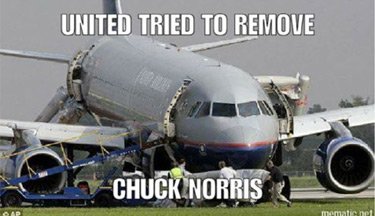Capitalism is unpopular for four reasons: banks, health-insurance companies, cable providers, and airlines. These all have something in common.
Airlines are in the wringer this week, with United shaming itself in spectacular fashion: Having overbooked a flight and seated the passengers, the company found itself needing four seats—not for paying customers but for airline employees who needed to be moved to another airport. When they did not find any takers for their paltry travel-voucher offers, they simply dispatched armed men to the airplane to force paying customers off, in a now-famous case, literally dragging one of them away. …
The FAA Consortium in Aviation Operations Research estimated a few years back that the inability of U.S. airlines to deliver the services they have been paid for and that they agreed to deliver costs businesses something like $17 billion. But that does not really capture the expense. A conference I attended not long ago was scheduled to get under way in the afternoon, but all of those who were speaking or who had other formal roles at the event were contractually required to arrive the evening before. There was plenty of time to fly in on the morning of the conference and arrive well before the opening of the conference, assuming the airlines kept to their schedule — but the organizers, who are not fools, were not willing to bet on that happening. I did a little back-of-the-envelope English-major math and concluded that the extra hotel rooms alone must have added a six-figure sum to the organizers’ expenses; if a significant number of the guests followed suit and decided not to bet on the airlines’ keeping their schedules, then the extra expenditure would have easily exceeded $1 million. There are thousands of events like that around the country every day. …
The airlines are terrible, of course, and every time one of them goes kaput, I do a little happy dance . . . until I remember that all that means is that the equally terrible remaining airlines have less competition. …
Airlines are like banks, health-insurance companies, and cable providers in that they work in very heavily regulated industries with relatively low profit margins, which creates enormous pressure for consolidation. (Notice how many health-insurance companies ditched markets they had previously served after the grievously misnamed Affordable Care Act was passed.) Those industries also are alike in that the relatively few players who remain in the market are heavily constrained by public-sector actors with powers that no private-sector monopoly would ever dare to dream of: the Federal Reserve, Medicare, the FCC, and the motley gangs of bureaucrats that have a hand in the airline business.
n the United States, it is regulation, not deregulation, that prevents foreign carriers from competing in the domestic market, which is not the case in New Zealand, which entered into a number of open-skies agreements to increase domestic competition, something our dinosaur airlines have fought against tooth and talon. And in New Zealand, airlines are obliged to compensate passengers if they bump them—up to ten times the cost of the ticket. No so in the United States.
And that points to one of the biggest reasons people hate banks, cable companies, health-insurance companies, and airlines: There is an in-your-face asymmetry of power. If the airline says your flight is going to be delayed by two hours — not because of a hurricane or unforeseeable events but because of straightforward managerial incompetence — then you basically have to live with it. You don’t get to say: “Okay, but I’m taking $50 off the airfare.†Your bank expects you to accept screw-ups on its part that might cost you hundreds or thousands of dollars if the mistake was yours. (My bank just spent 46 cents to send me a check for . . . 47 cents . . . because apparently I bank with people who cannot quite manage to calculate interest correctly.) Your cable service may go out for hours at a time, but if you’re one minute late with your payment, expect penalties.
That is one major problem with heavily regulated industries in which there is insufficient competition: The managers act as though the business were organized for their benefit rather than for the customers, and that attitude seeps down to front-line workers. The typical airline employee treats the typical traveler as though he simply is in the way. I once was introduced to an executive who informed me that he was in charge of “strategic planning†for a large municipal utility company. I asked him whether his strategic plan was to keep being a monopoly. “I’d really be exploring that angle, strategic-planning-wise,†I advised. He did not seem to appreciate my counsel.
If I were a better sort of person, I’d have a little sympathy for the senior executives at United, who must be having a hell of a week. I am not a better sort of person, and I’d be content to see them flogged in the streets. But that’s no way to make policy.

